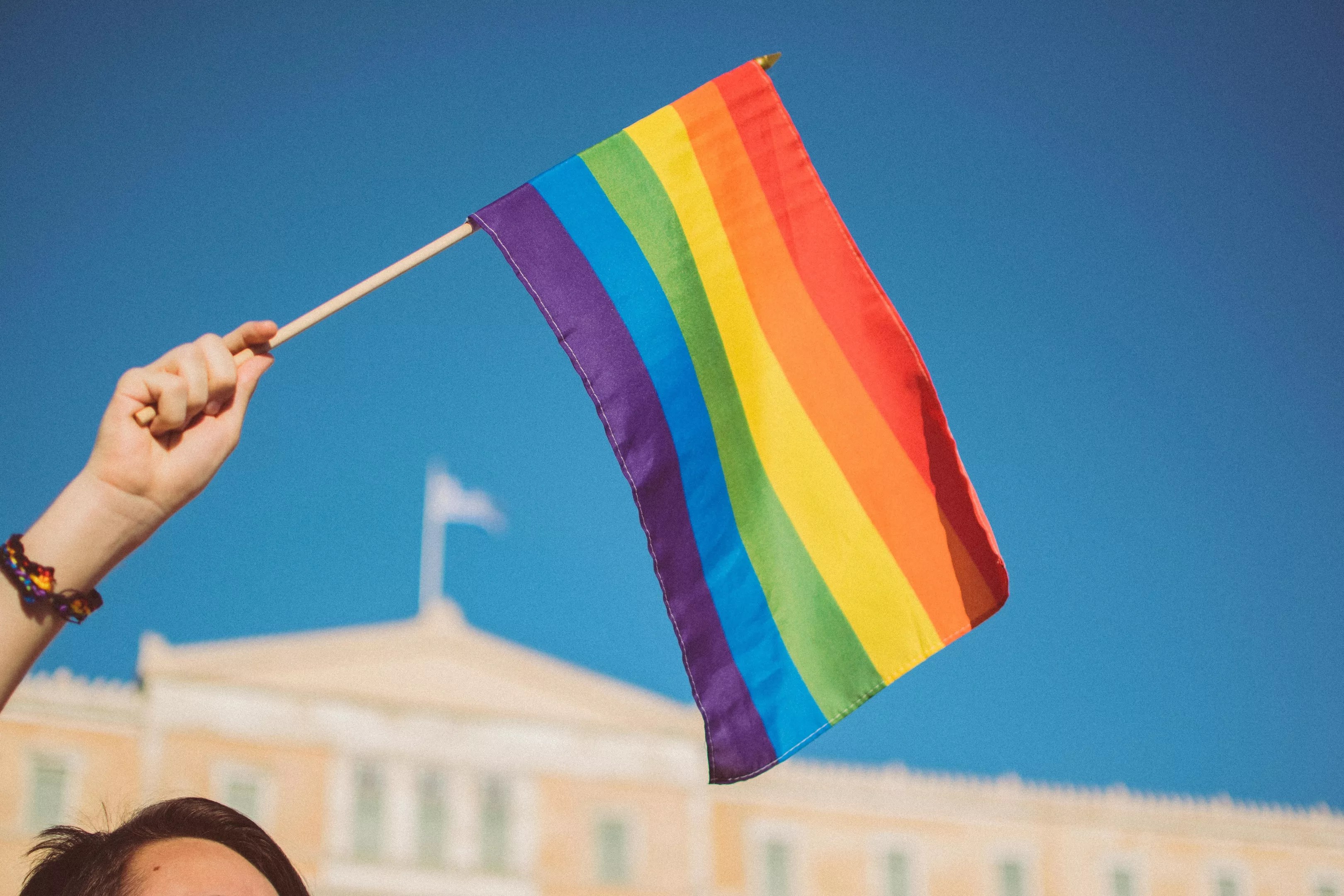
Photo by Stavrialena Gontzou on Unsplash

Audio By Carbonatix
A quarter of LGBTQ+ daters say the shifting political scene is changing how they date, and who can blame them? As the administration guts federal websites of any inclusive language, cuts resources for queer youth and enforces the recognition of only two genders, it makes sense that LGBTQ+ daters would want to avoid closeted homophobes and transphobes.
“Politics feels a lot more personal to young LGBTQ people who have made their identity a very central part of who they are and how they present themselves and how they navigate the world,” says Dr. Justin Lehmiller, a researcher tracking how politics is changing queer dating.
The study, which surveyed 2,000 singles between the ages of 18 and 91, was a collaboration between the Kinsey Institute and DatingNews.com. Roughly 35% of all respondents identified as part of the LGBTQ+ community. The findings were concerning.
Almost 20% of queer respondents said they were taking more precautions to protect their identity while exploring the dating pool. About 34.6% said they didn’t feel comfortable disclosing their identity while dating, and 10% said they were less comfortable visiting LGBTQ+ venues.
Lehmiller notes that the study does not differentiate results by particular identity, and many of the respondents who are secretive about their identity could be bisexual. Bisexual people are the largest subgroup under the LGBTQ+ umbrella.
“In the last 20 years, LGBTQ rights and acceptance have largely been on a positive trajectory,” says Lehmiller, one of the researchers leading the study. “But in the last few years, we’ve seen some backsliding of this, where public opinion polls are actually showing a slight decrease in support for certain LGBTQ issues.”
The result, Lehmiller says, is a generational gap in portions of the LGBTQ+ community that are openly out about their sexuality. About 44% of Gen Z queer singles say they don’t feel safe being open about their identity while dating, compared to just 5% of LGBTQ singles over 65.
Lehmiller says the reason younger generations are less open about their identities is “multifactorial,” but the changing economic landscape and mass rollback of progress are early explanations.
“When you’re looking at young adults, Generation Z, who are in this very financially precarious position on top of the political environment that we’re living in, there’s anxiety on multiple levels,” he says. “You’ve got the concerns about your personal safety, but then also in terms of your future and how you’re going to navigate that. It is a very different situation for younger versus older folks based on multiple factors.”
But he also says the current moment is only temporary, and that the community has faced eras of fluctuating persecution before.
“With the community, you’ve always seen this on a pendulum where things go back and forth, and these are hard-fought battles that take time in terms of advancing rights and causes.”
Our local politicians have matched the moves of the federal government as closely as possible, resulting in a growing number of LGBTQ+ community members of all ages fleeing the state. According to Lehmiller’s study, 21% of Gen Z LGBTQ+ daters have moved to friendlier cities.
Most large cities, even those below the Mason-Dixon Line, have a historically gay neighborhood, offering reprieve to the communities in less accepting locales. But Lehmiller says even gayborhoods are dwindling as time goes on.
“[Gayborhoods] were designed intentionally to create a safe space and a sense of community for this minority group,” he says. “They serve their purpose well and also help in terms of creating political organization and strength within the community. But in the last couple of decades, we’ve actually seen a lot of these neighborhoods start to dwindle or disappear.”
Take that as your cue to head down to the Cedar Springs Strip for a Tito’s shot on Texas Tuesday at Round-Up soon.